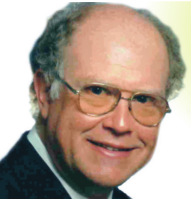Optimizing performance is the key, even during a pandemic
I had an interesting conversation with George Fredette, CEO of SFC Engineering Partnership in Windham, an interdisciplinary engineering consulting firm for over 25 years.
I asked George if his people were back in the office or still working from home. Without any hesitation, he said, “Working from home, and we’re likely to keep it that way. It seems everybody likes it, and performance has actually improved.”
Last year, the offices they were occupying became untenable, and they were forced to move. They found a deal on larger offices but, on reflection, decided to go for less space and make themselves remote-capable, not knowing just how critical that would become just a few months down the road. They decided to put their money into the tools that would enable more flexibility instead of into more real estate.
On Monday morning, March 16, they called everyone into the conference room and told them they would have to work from home. “Take what you need. Bring it home with you. We don’t know how long this will last.”
One guy didn’t have a comfortable office chair at home. “Go get one and expense it.” Another guy likes to go for a run during the middle of the day. He comes back refreshed and eager to get back to work. Whatever it takes … SFC has 15 employees. These folks are engineers and project managers. They need big screens to do their work effectively. A laptop can work if it’s plugged into a docking station with a big screen and a few other toys. It doesn’t have to be fancy, but they need a dedicated workspace. The kitchen table doesn’t work. And of course, they need internet, phones, etc. That’s the easy part.
They also need managers who understand how to manage remotely. Most projects are done by a single engineer with little need to collaborate with other engineers in the company. Some projects have two engineers or even three and, of course, a much greater need to collaborate with each other.
The technology has been available for years, and it keeps getting better and better. A phone call, once considered the ultimate communications tool, is the easiest and most common. But they can videoconference with each other. They can share what’s on their computer screen with one or more colleagues, so they’re all looking and discussing the same thing. They can do that with customers as well.
They can do remotely just about everything they used to do in the office.
Staff meetings and other meetings are virtual. Yes, sometimes they have to stop by the office to get something or meet with somebody, but they could go weeks without doing that.
We often think of things when we’re not in the office. We may write ourselves a note to remind us to do it when we get back in the office. When the office is at home, we’re likely to do it right then and there while it’s fresh in our minds.
Now, this may not work for everyone. If these engineers were designing a product together, they would probably have to spend a lot of time in the same room. And, of course, it doesn’t have to be all remote or all in office. A combination of the two may be the best approach for many organizations.
George is concerned that college grad new hires might need a fair amount of inperson face-to-face time with a mentor to learn the ropes. Doing that remotely might exaggerate the learning curve. Even so, that can be handled on a caseby-case basis. Flexibility is the key.
Right now, George says they’re trying to drink from a fire hose. They expect 2020 to be at least as good as 2019 and probably better. Not many companies can say that.
George goes to the office because he’s used to it. “If we have to pay for it, we might as well use it.” That’s true, but it wouldn’t make sense to maximize the ROI on their rent by trying to fully utilize the office, if it means losing those performance improvements.
Optimizing performance is the key, even during a pandemic and after. Managing is an awful lot like playing cards. Admittedly, we have little control over the cards we’re dealt. How we play them makes all the difference.
Ronald J. Bourque, a consultant and speaker from Salem, has had engagements throughout the United States, Europe and Asia. He can be reached at 603-898-1871 or RonBourque3@gmail.com.